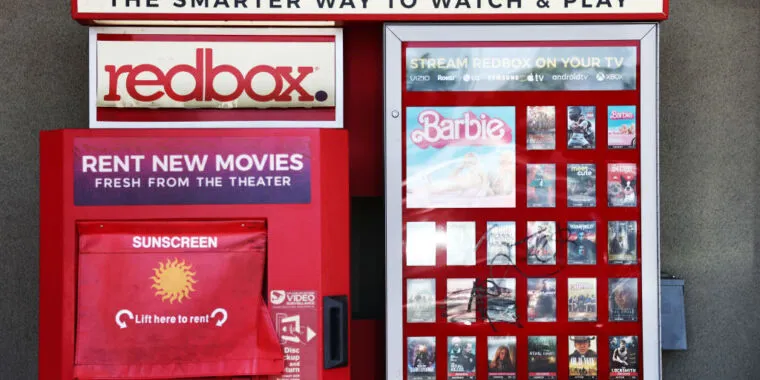- cross-posted to:
- technology
- [email protected]
- [email protected]
- cross-posted to:
- technology
- [email protected]
- [email protected]
It’s sensible for businesses to shift from physical media sales. Per CNBC’s calculations, DVD sales fell over 86 percent between 2008 and 2019. Research from the Motion Picture Association in 2021 found that physical media represented 8 percent of the home/mobile entertainment market in the US, falling behind digital (80 percent) and theatrical (12 percent).
But as physical media gets less lucrative and the shuttering of businesses makes optical discs harder to find, the streaming services that largely replaced them are getting aggravating and unreliable. And with the streaming industry becoming more competitive and profit-hungry than ever, you never know if the movie/show that most attracted you to a streaming service will still be available when you finally get a chance to sit down and watch. Even paid-for online libraries that were marketed as available “forever” have been ripped away from customers.
When someone buys or rents a DVD, they know exactly what content they’re paying for and for how long they’ll have it (assuming they take care of the physical media). They can also watch the content if the Internet goes out and be certain that they’re getting uncompressed 4K resolution. DVD viewers are also less likely to be bombarded with ads whenever they pause and can get around an ad-riddled smart TV home screen (nothing’s perfect; some DVDs have unskippable commercials).



Are the numbers about DVD sales strictly about DVD sales or do they include all optical formats (Blu-ray/UltraHD Blu-ray)? Because unless I’m getting an old TV show that was only ever SD, my preference is to get a Blu-ray, not a DVD. I suppose if I still saw the super cheap ($3-5) DVDs in the grocery store for something I like but not enough to buy normally (this is how I bought Brewster’s Millions) then I might buy a DVD, but otherwise I at least want HD quality.
Isn’t Blu Ray dead?
No, bluray is 1080p (or 2160p if UHD Bluray) while DVDs are 576p-720p (what looks really shitty on a 4K TV). I only buy BDs and UHD BDs these days
576p is the absolute maximum. Most DVDs are actually 480p.
I am pretty sure 1080p video will fit on DVD just fine if formatted as regular data disc. But I am not sure if H.264 or anything newer is supported, and video may not have the highest quality, but still better than 720p I guess.
That’s true, but the DVD-Video standard only supports MPEG-2 at 720x576 (PAL), or 720x480 (NTSC).
Sure, you can put a 1080p AVC-encoded video on a DVD formatted as a data disc, but it won’t play on a DVD player.
Huh. I had a vague memory that my DVD player allowed regular movie files to be played, but maybe my memory is just bad.
That would be very device-specific, if they wanted to add additional support for data discs. It would be outside the scope of the actual DVD-video playback functionality.
No.
You’re correct. They are only killing the consumer recordable media. I thought it was all Blu Ray
I think it’s only Sony’s first-party discs, too. So someone else could theoretically manufacture them. I don’t know if anyone else does, though.
There are plenty others who do.